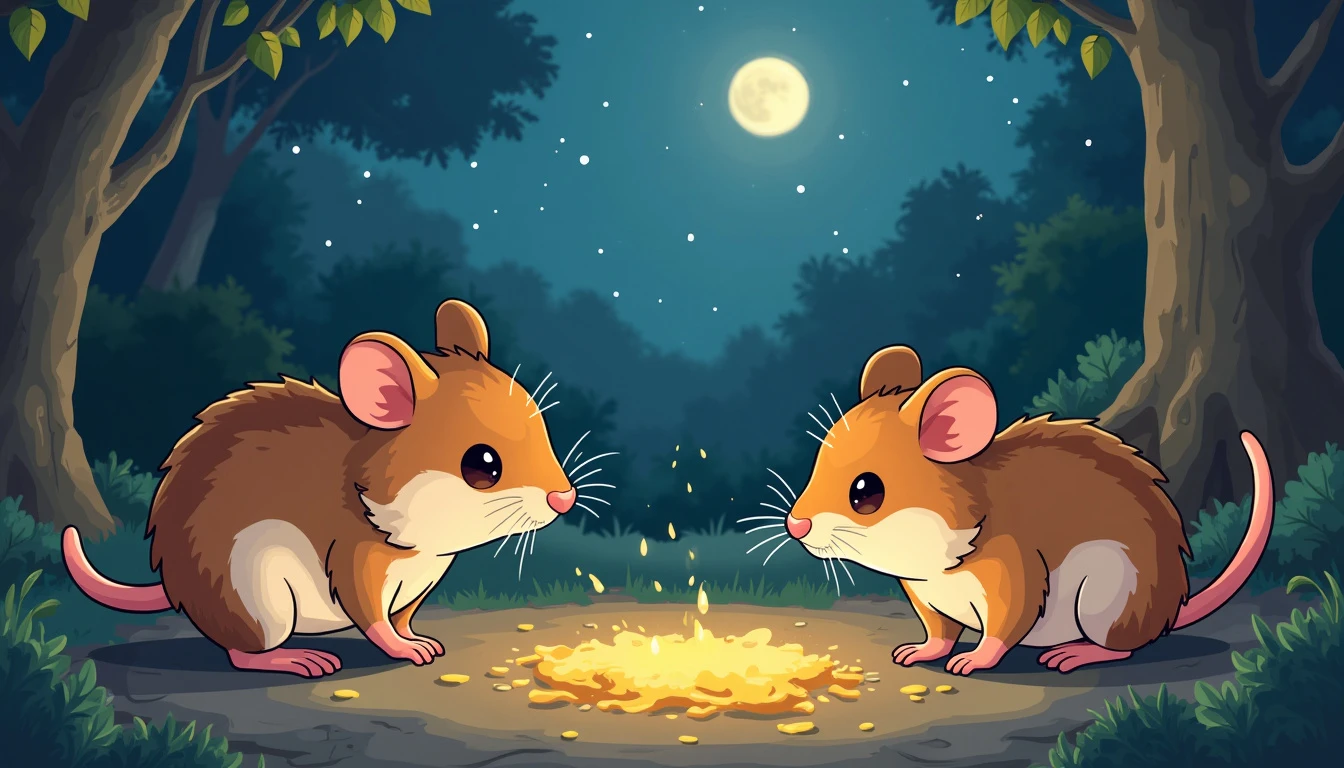Have you ever wondered why your furry little friend seems to come alive when the lights go out? The question “Are hamsters nocturnal?” has puzzled many pet owners. In this comprehensive guide, we’ll explore hamster sleep patterns and shed light on whether these popular pocket pets are truly creatures of the night.
Understanding Nocturnal Behavior
Before we dive into the specifics of hamster sleep habits, let’s clarify what it means for an animal to be nocturnal. Nocturnal animals are those that are active primarily during the night and sleep during the day. This behavior is in contrast to diurnal animals, which are active during daylight hours and rest at night.
There’s also a third category: crepuscular animals. These creatures are most active during twilight hours, specifically dawn and dusk. This distinction is crucial when we consider hamster behavior, as we’ll soon discover.
Evolutionary advantages of nocturnal behavior include:
- Avoiding predators that hunt during the day
- Regulating body temperature in hot climates
- Reducing competition for resources with diurnal species
Hamster Sleep Patterns: Nocturnal or Not?
When it comes to hamster activity cycles, the answer isn’t as straightforward as a simple “yes” or “no” to the question “Are hamsters nocturnal?” In fact, most hamsters exhibit a mix of nocturnal and crepuscular behaviors.
Hamsters are generally most active during the twilight hours, making them primarily crepuscular. However, they also show significant activity during the night, which is why many people perceive them as nocturnal. This blend of behaviors allows hamsters to take advantage of the cooler temperatures and reduced predator activity of the night while still benefiting from some residual light during dawn and dusk.
Several factors influence hamster sleep habits:
- Species differences
- Environmental conditions
- Individual preferences
- Age and health status
Different Hamster Species and Their Sleep Schedules
Not all hamsters follow the same sleep patterns. Let’s look at some popular pet hamster species and their typical activity cycles:
Syrian Hamsters
Syrian hamsters, also known as golden hamsters, tend to be more nocturnal than other species. They usually wake up around sunset and remain active throughout the night, with periods of rest in between.
Dwarf Hamsters
Dwarf hamster species, including Roborovski, Campbell’s, and Winter White hamsters, often display more crepuscular tendencies. They may have several short periods of activity throughout the day and night, with peak activity during twilight hours.
Chinese Hamsters
Chinese hamsters fall somewhere in between, showing both nocturnal and crepuscular behaviors. They may be active for short bursts during the day but are generally more lively at night.
The Science Behind Hamster Sleep
Understanding the circadian rhythm of hamsters can help explain their sleep patterns. Like humans, hamsters have an internal biological clock that regulates their sleep-wake cycle. This clock is influenced by environmental cues, particularly light exposure.
Hamsters are highly sensitive to light, and their activity levels are closely tied to the day-night cycle. In the wild, this sensitivity helps them avoid predators and find food during safer, dimmer hours. Interestingly, domestication has had some impact on hamster sleep patterns, with pet hamsters showing more flexibility in their schedules compared to their wild counterparts.
Nighttime Activity in Pet Hamsters
If you’re a hamster owner, you’ve likely noticed increased activity from your pet during the evening and night hours. Common nocturnal behaviors in hamsters include:
- Running on their wheel
- Foraging for food
- Burrowing and nest-building
- Grooming
- Exploring their habitat
Hamster wheel usage at night is particularly common and serves multiple purposes. It provides exercise, mental stimulation, and helps hamsters expend energy they would normally use for foraging in the wild.
Caring for Your Nocturnal (or Crepuscular) Pet
Understanding your hamster’s natural sleep patterns is crucial for providing appropriate care. Here are some tips to ensure your hamster’s well-being:
- Set up the cage in a quiet area where daytime noises won’t disturb your hamster’s sleep.
- Provide a dark, cozy sleeping area within the cage.
- Maintain a consistent light-dark cycle to help regulate your hamster’s circadian rhythm.
- Offer food and fresh water before your hamster’s active period begins.
- Plan interaction and playtime during your hamster’s naturally active hours.
- Use a silent exercise wheel to minimize nighttime noise.
Remember, while it’s tempting to wake your hamster during the day for interaction, it’s best to respect their natural sleep cycle. Disturbing their sleep can lead to stress and health issues.
Conclusion
So, are hamsters nocturnal? The answer is not a simple yes or no. While hamsters do show nocturnal tendencies, they are more accurately described as crepuscular, with peak activity during twilight hours and significant nighttime activity. Each hamster species has its own unique sleep patterns, and individual hamsters may vary in their preferences.
Understanding and accommodating your hamster’s natural rhythms is key to providing the best care for your pet. By respecting their sleep schedule and creating an environment that supports their natural behaviors, you can ensure a happy, healthy life for your furry friend.
FAQ
Are all hamsters nocturnal?
Not all hamsters are strictly nocturnal. Most exhibit a mix of nocturnal and crepuscular behaviors, with some variation between species and individuals.
How many hours do hamsters sleep?
Hamsters typically sleep for 12-14 hours a day, usually in several shorter periods rather than one long stretch.
Can I change my hamster’s sleep schedule?
While you can slightly adjust your hamster’s schedule through consistent lighting and interaction patterns, it’s best not to force major changes to their natural rhythm.
Should I wake my hamster during the day?
It’s generally not recommended to wake your hamster during their sleep time. This can cause stress and disrupt their natural cycle.
How can I reduce hamster noise at night?
To minimize nighttime noise, provide a solid-surface exercise wheel, secure loose cage items, and place the cage away from your sleeping area.

